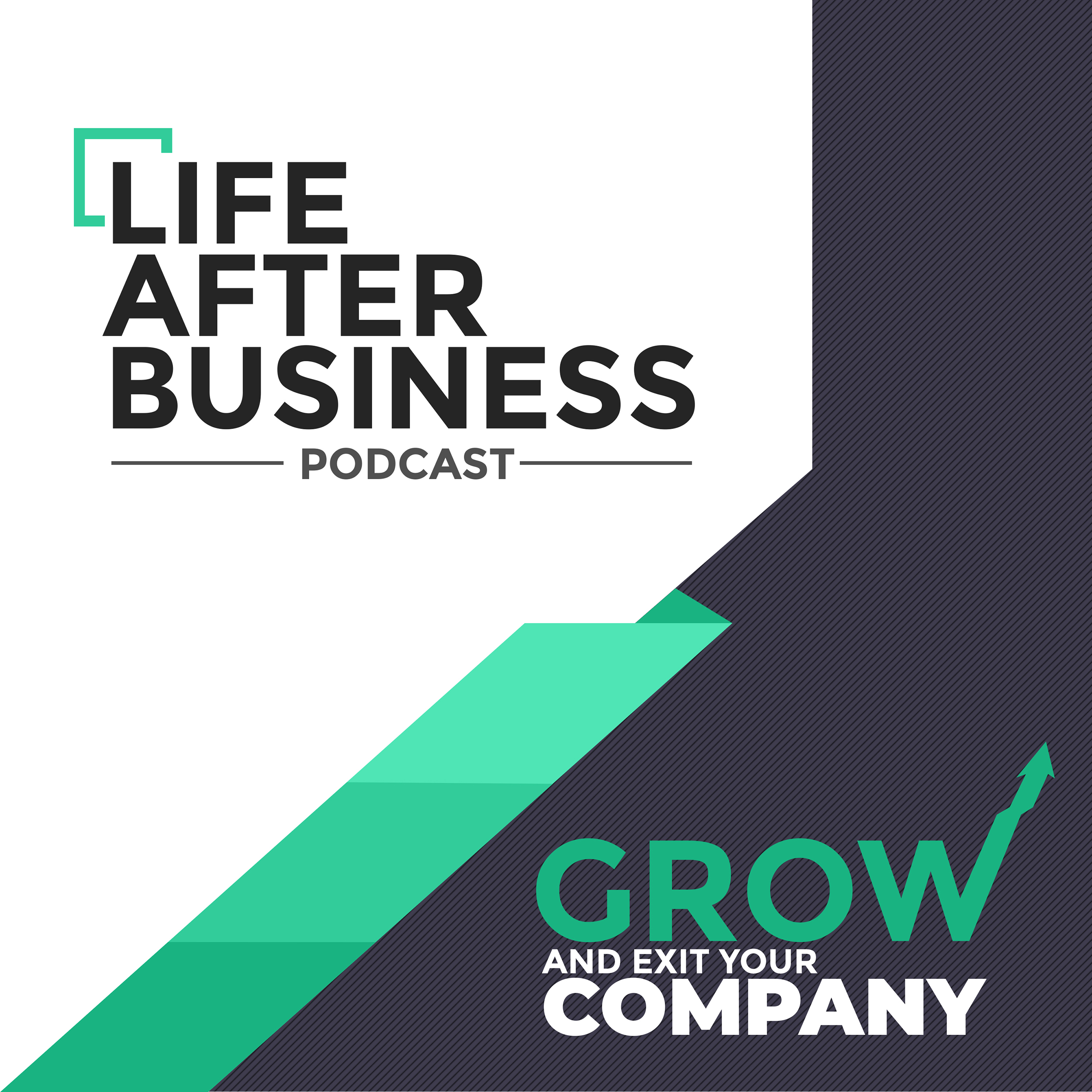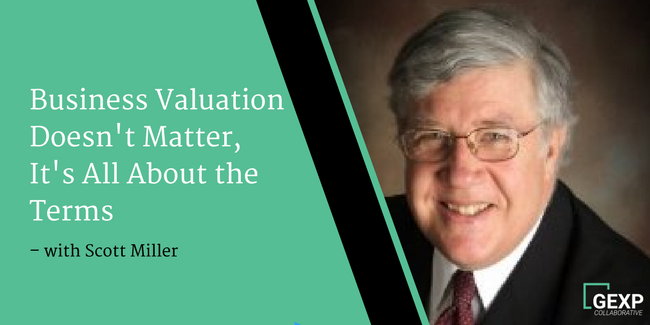After long service as a United States Air Force officer, Todd transitioned to independent practice in family wealth services in 1992. He specializes in asset protection planning and complex tax planning for families that own middle-market companies. In particular, he focuses on tax mitigation for business dispositions. Todd collaborates with a wide range of professionals that touch business sales: exit planners, M&A advisors, accountants, attorneys, and investment professionals. Todd holds a law degree, an advanced legal degree in taxation, and a doctoral degree specializing in finance. Todd is a contributor to Forbes Magazine online; his column focuses on issues confronting families that own middle-market companies.
In this episode, you’ll learn:
Nothing like Uncle Sam taking half of your business proceeds when you sell… that’s why you sold your soul and worked your ass off for the last couple decades right?!?!? Good news folks, we’ve got someone on the show today who can show you how. As a partner at the Integrated Wealth Counsel, Todd Ganos is a specialist in tax planning who makes it his business to stay up-to-date with the constantly evolving tax regulations and legal precedents.
If there is one episode of my show so far that fulfils the purpose of “bringing our listeners all the information I wish I would have had before we sold”, this is truly it. I know, based on some of the conversations I have had with Todd, that there were a few things we could have done to put more than 7 figures INTO our pockets had we had the right advisors and the right planning.
Don’t worry this isn’t some boring tax code episode, Todd shares with us colorful stories about what is possible in the shell game of the tax code and what to look out for when hiring your advisors.
Todd shares with us a lot more than the technical detail of tax planning and estate management. He really helped shed some light on the many conflicts of interest that play out among the different parties sitting around the table during a business sale, and how business owners can avoid being caught out by the wrong ‘advice’.
70% of all wealth in the US is in the hands of first-generation business owners. Tax planning and succession management are therefore fundamental to the prosperity of a large section of America as a whole.
“70% of all wealth in the US is in the hands of first-generation business owners.”
When selling your business, make sure you use somebody who specializes in business sales, not somebody who spends their everyday working life advising clients on how to properly claim their travel expenses. So often a CPA or attorney is assigned to manage a sale who simply isn’t qualified to do it. Just because your CPA drafted your articles of incorporation doesn’t mean that they are capable of doing the biggest transition IN YOUR LIFE! It’s vitally important that there is someone in your camp who is up with the latest legal rulings and law changes, and who doesn’t have an ulterior motive during the sale (more on this later).
In Todd’s words, “there is no cookie cutter solution”, but Todd shared with us a method that has been tested by 80+ favorable rulings from the IRS. A trust can be created where the assets are taxed in a different location to where they operate, i.e. for income tax purposes a family business is part of a trust registered in Nevada (where income tax is 0%). And when the time comes to sell, the business is sold as if it were a Nevada resident. While any business in this arrangement is still subject to federal tax, the savings can be significant.
“there is no cookie cutter solution for transition planning”
Insurance (as in many whole life, variable, etc. polices) have their place in many estate plans and have most likely done the owner significant justice should they ever need to call upon the policy. However Todd has some insight on how a skilled practitioner in tax, estate, and transition planning should generally be able to design an estate in such a way that insurance isn’t necessary. Insurance makes sense for people who don’t have access to this type of skill set (or don’t know where to find them), but why not pay for a skilled planner instead of insurance?
Have you ever had anyone suggest you bring your plan to the IRS BEFORE you submit your strategy? My guess is a solid “Hell no!” for most of us business owners. The whole goal is to outsmart them isn’t it?
Well maybe not…
Todd brings the game of tax planning to a whole new level and a different playing field. His approach shows that coming in peace to the IRS is far better than have them find out something negative about your business when your sale or transition is done and the documents are filed.
What would you do if the IRS came to you 5 years after the sale was complete and asked for another million dollars because they didn’t really jive with your strategy and wanted you to shore up what they thought you owed… would you be able to pony up? Even if you could, I can guarantee that you would be one upset individual.
Where possible, Todd seeks agreement from the IRS in the form of a ‘private letter ruling’ long before the ultimate sale of a business. Once the IRS has agreed with the structure/tax behavior of a firm, they can never go back on it if it remains the same. Believe it or not, they are good on their word! As well as giving great peace of mind for when the time comes to sell, the ongoing dialogue this creates is very useful in building trust between the IRS and the company for sale.
Todd dealt with a CPA, during a deal, who was a tax partner in a major CPA firm who said to him:
“Even though we might be retained by a business seller, we really don’t care about them because that business seller has one deal in their life. The reality of the situation is the buyer… they’re feeding us 10 deals a year. That’s where we get our revenue and that’s whose interest we really look after”.
In another case, Todd came across a CPA acting on behalf of the seller, going against convention and re-categorizing $200,000 in cash to the buyer. When questioned the CPA said “I want to get business from the buyer in future so I’m doing them a favor”.
By hiring an exit planner or M & A adviser whose responsibility is to advise on the WHOLE picture, not just one specific part of it. They are not the investment banker, CPA firm or law firm. Todd’s firm regularly works with exit planners – he has seen their worth firsthand.
Even as a professional tax adviser, Todd is very realistic in the fact that we are all humans and have motivations and ideas that may or may not be rational. Having both strategies in place is preferable, but the conversations about company structure should come after the more ‘human’ conversations. It’s worth noting that there are certain professionals whose sole job is to handle the emotional side of any transition, succession plan, or sale.
“Once you’ve got your buyer identified, you’ve foregone a lot of the tax savings you’ll be able to do. You need to have your tax plan in place before you shop your business.”
“You have to have all of this planning – the exit planning, the tax planning – ready for the out-of-the-blue offer you cannot turn down”
“If you’re selling a house you don’t just let the buyer do the inspection only with their contractor. You do your own before – you find where all the leaky pipes are and you fix them so when the buyer does their inspection they see you’ve got a clean bill of health. The buyer feels real confident in what they are buying and you had a chance to fix what you needed to”
Forbes Magazine Online column is: www.forbes.com/sites/toddganos
Best way to reach Todd is: [email protected]
Website: https://www.integratedwealth.com

With 2018 coming to a close and the Life After Business podcast in the middle of it’s second year, I figured it was time...

We speak to a man who has been there and done it… from the business buyer to the eventual seller of his own company. ...

Valuations, Gross Sale Price and Net Proceeds… What Really Matters? I had a great conversation with Scott Miller in this episode and we tackle...